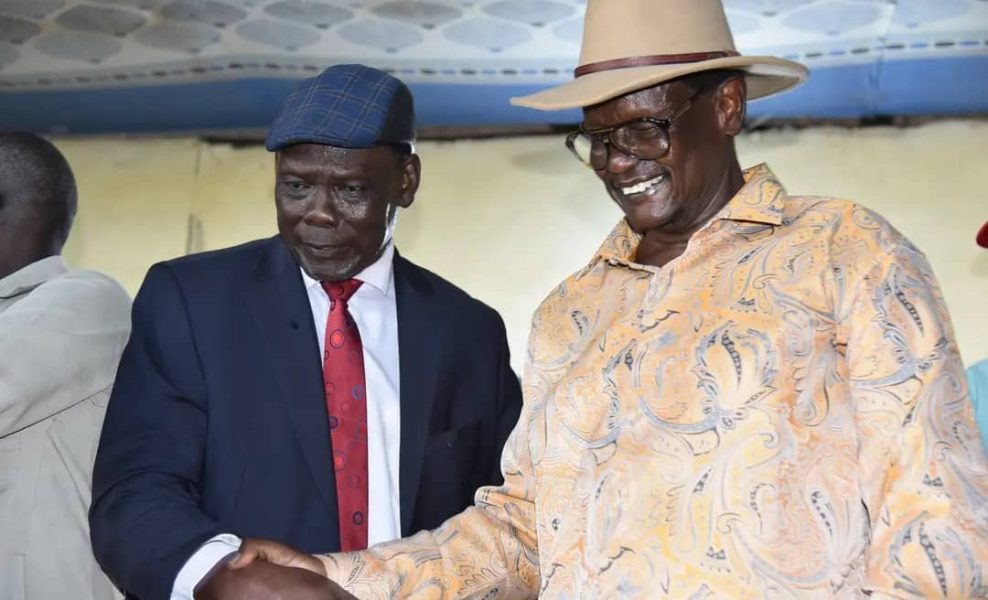
After years of bitter rivalry, two of Greater Tonj’s most prominent leaders, Aleu Ayieny Aleu and Lewis Anei Madut Kueindit, have publicly reconciled.
The two men set aside their long-standing differences during a peace forum in Tonj Town of Warrap State, promising to work together for the good of a state desperate for stability.
The landmark peace forum was initiated by Warrap State’s Governor, Bol Wek Agoth, who brought the two rivals to the table.
In a statement by the governor’s press unit, Mr. Agoth hailed the reconciliation as crucial for conflict resolution in the restive Greater Tonj.
He called on the state’s intellectual and political leaders to spearhead peace initiatives and serve as role models.
“A pen is mightier than a gun. It can build a bridge, save lives in hospitals, and revolutionize agriculture. We must convince the younger generation that peaceful ideas, not weapons, will move our community forward,” Governor Agoth said.
While the specific causes of the long-standing rift between Aleu and Anei were not disclosed, both men joined the governor’s call for peace.
“The greater Tonj leaders, Gen Aleu and Lewis Anei, urged the youth to draw a lesson from them and forgive one another for peace to prevail in Warrap state,” the statement stated.
The reconciliation of the two leaders comes at a critical time for Warrap State, which is currently under a state of emergency due to persistent conflict often linked to cattle raiding and revenge attacks.
Local civil society organizations have frequently accused area politicians of exacerbating the violence by supplying weapons to youth and instigating clashes.
Despite this high-profile reconciliation, observers and civil society groups emphasize that lasting peace will depend on sustained efforts.
There is a broad consensus that genuine progress requires disengaging youth from the cycle of violence and directly involving them in peace and reconciliation processes to achieve lasting stability in the area

